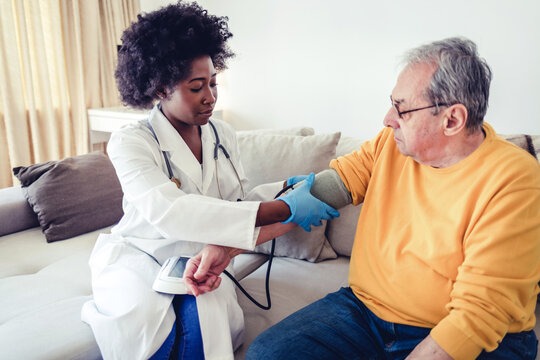As the number of older persons continues to rise globally, ensuring access to quality healthcare for the elderly becomes increasingly important.
The world is facing a demographic revolution, with the number of people aged 65 and older expected to reach 1.5 billion by 2050 according to the World Health Organisation (WHO). This unprecedented aging of the population poses significant challenges to healthcare systems worldwide. In Africa, the aging population is growing rapidly, with the number of people aged 65 and older expected to reach 67 million by 2050.
Join our WhatsApp ChannelREAD ALSO: Why Africa Must Adopt technology To Tackle Healthcare Challenges – Tijani
According to the United Nations, the aging population is growing faster in Africa than in any other region, with an annual growth rate of 3.1%. This rapid increase of ageing population poses significant challenges to healthcare systems in the region, which are already struggling to cope with the increasing demand for services. The challenges posed by the aging population include increased demand for healthcare services, shortage of healthcare personnel, particularly in geriatric care, social isolation and mental health concerns, and polypharmacy and medication management complexities.
One of the primary concerns is the increased demand for healthcare services. Older adults have higher rates of chronic diseases, such as diabetes, hypertension, and cardiovascular problem, leading to more hospitalization and frequent visits for medical consultation. This surge in demand is exacerbating existing healthcare workforce shortages, particularly in geriatric care. The healthcare workforce is aging, and there is a shortage of geriatricians and other healthcare professionals trained to care for older adults.
Social isolation and mental health are also significant concerns. Older adults are at risk of social isolation, depression, and anxiety, which can exacerbate physical health issues. The lack of social connections and community support can lead to feelings of loneliness and disconnection, further complicating healthcare needs.
Polypharmacy and medication management are additional challenges. Older adults often take multiple medications, increasing the risk of adverse drug events and drug interactions. This complex medication regimen requires careful management, which can be difficult for healthcare providers to coordinate.
Despite these challenges, there are opportunities for innovation and improvement. Telehealth and digital technologies can enhance access to healthcare services, improve medication management, and facilitate remote monitoring. Value-based care models prioritize prevention, early intervention, and coordinated care, which can improve health outcomes and reduce costs. New models of care, such as geriatric emergency departments and age-friendly hospitals, are emerging to address the unique needs of older adults.
To address these challenges, it is essential to invest in healthcare workforce development, particularly in geriatric care. This can be achieved through training programs for healthcare professionals, as well as recruiting and retaining geriatricians and other healthcare professionals specializing in care for older adults. Implementing technology-enabled healthcare solutions, such as telehealth and digital health platforms, can also enhance access to healthcare services and improve medication management.
Age-friendly Healthcare
Promoting age-friendly healthcare environments and services is also crucial. This can be achieved through designing healthcare facilities that are accessible and accommodating for older adults, as well as providing age-appropriate healthcare services. Encouraging community-based care and social support networks can also help address social isolation and mental health concerns.
In Africa, specific solutions include strengthening healthcare systems and infrastructure, developing geriatric care training programs for healthcare professionals, implementing innovative healthcare financing models, and leveraging technology and digital health solutions to enhance access to healthcare services.
Top 10 Countries With Better Access to Healthcare for Aged People
The top 10 Countries with better access to Healthcare for Aged People are: Sweden, Norway, Denmark, Finland, Canada, Australia, United Kingdom, Germany, Japan, and The United States. According to the World Health Organization, these countries have implemented various initiatives to improve healthcare access for older adults, including age-friendly healthcare facilities, geriatric care training programs, and innovative healthcare financing models.
According to World Health Organisation (WHO), Globally, an estimated 1.4 million older adults die each year due to lack of access to healthcare facilities and in Africa, an estimated 450,000 older adults die each year due to lack of access to healthcare facilities. This estimates of number of deaths due to lack of healthcare shows that there is a need for the improvement of healthcare facilities for the aged and a sustainable high quality care for them.
In conclusion, the aging population poses significant challenges to healthcare systems worldwide, but also presents opportunities for innovation and improvement. By addressing the unique needs of older adults, prioritizing prevention and early intervention, and leveraging technology and care coordination, we can create a more sustainable and effective healthcare system for all. It is crucial that we act now to address these challenges and ensure that our healthcare system is equipped to care for the growing number of older adults and high- quality care for all.


















Follow Us